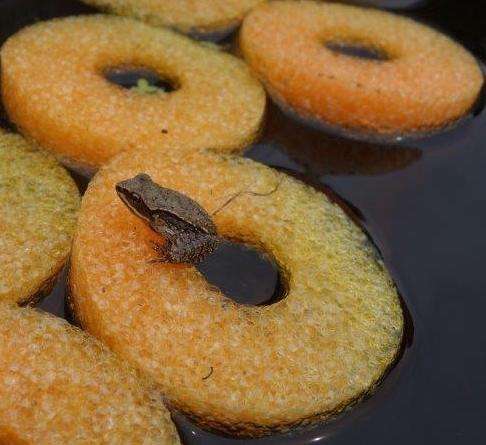Study examines pesticides' impact on wood frogs

A new study looks at how neonicotinoid pesticides affect wood frogs, which use surface waters in agricultural environments to breed and reproduce. Neonicotinoids are widely used insecticides that are applied to a variety of crops and are relatively persistent in the environment.
The study found that some neonicotinoids may cause developmental delays in the frogs, but these are not necessarily detrimental. Additional studies are needed to investigative the direct and indirect effects of neonicotinoids on wood frogs and other amphibian populations.
"The slight delay in development may not be cause for concern on its own; however, in the natural environment, additional stressors such as mixtures of pesticides, predators, or parasites can contribute to further delays," said Dr. Stacey Robinson, lead author of the Environmental Toxicology and Chemistry article. "Such cumulative stressors are important to consider in understanding the potential impact on amphibian populations."
More information: Stacey A. Robinson et al, Sublethal effects on wood frogs chronically exposed to environmentally relevant concentrations of two neonicotinoid insecticides, Environmental Toxicology and Chemistry (2017). DOI: 10.1002/etc.3739
Journal information: Environmental Toxicology and Chemistry
Provided by Wiley


















